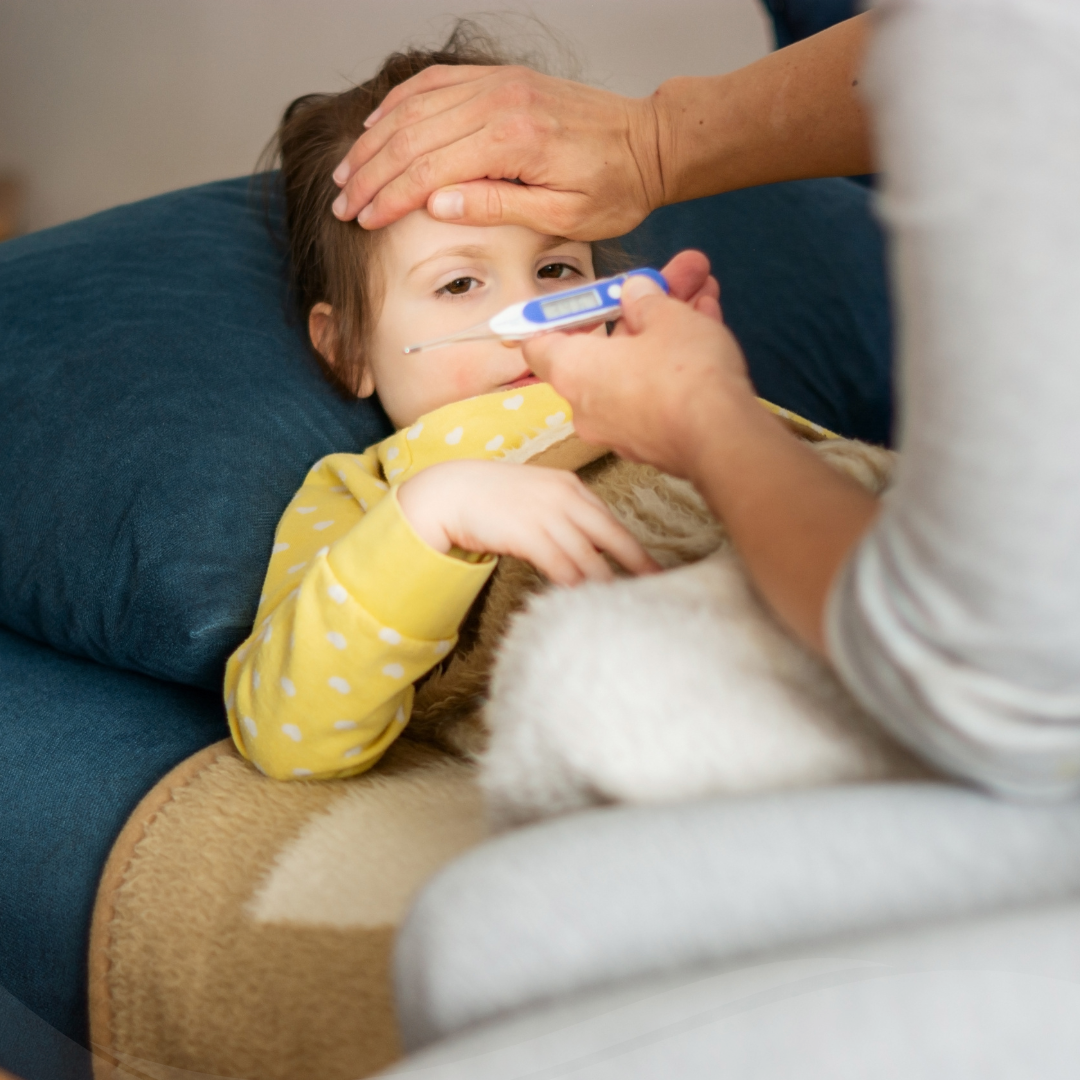Respiratory Syncytial Virus (RSV)
Respiratory Syncytial Virus (RSV) is a common virus infecting the respiratory tract, often causing colds and sometimes severe illnesses in young children and older adults.

Respiratory Syncytial Virus (RSV) is very contagious and can spread easily through inhaling or touching small droplets from those who have coughed or sneezed. It is the most common respiratory tract infection in young children, with most kids experiencing RSV before age 2. It can spread quickly in crowded areas such as schools, day cares and nursing homes. People with RSV can be contagious for 3-8 days, and those with weakened immune systems can be contagious for up to 4 weeks, even after their symptoms have subsided.
Symptoms of RSV can include:
- Sneezing/Runny nose
- Cough
- Headache
- Fever
- Fatigue
- Sore throat
- Decreased appetite
Symptoms among infants can include:
- Decrease in activity
- Trouble breathing
- Difficulty feeding
- Irritability


When to see a doctor
RSV can sometimes lead to other more serious infections such as pneumonia or bronchiolitis. It is important to seek medical attention when someone with RSV experiences:
- Faster than normal breathing that is getting worse
- Severe cold symptoms
- Persistent shallow coughing
- Loss of appetite and energy
- Trouble breathing
Treatment
RSV tends to clear up on its own, and symptoms can usually be managed at home and will clear up in 1-2 weeks. To help ease symptoms and prevent further illness, be sure to drink lots of fluids and rest your body. If needed, over-the-counter medications can be used to alleviate fever such as acetaminophen (for example, Tylenol©) or ibuprofen (for example, Advil©).


Prevention
- Stay home if you are sick
- Cover your cough or sneeze
- Wash your hands regularly
- Avoid contact with those who are sick
RSV Webinar: Enhancing Resilience Against RSV
In November 2023, BC Lung Foundation hosted an Adult RSV webinar, in which Dr. Alan Kaplan presented the risks of respiratory viruses, discussed vaccine options (influenza, pneumonia, RSV), and explored other preventative measures so that individuals with lung disease can enhance their resilience against the potential impact of RSV. The webinar covered:
• The burden of disease and risk factors associated with respiratory syncytial virus (RSV) in older adults, including at-risk populations such as those with underlying comorbidities
• Discuss the potential outcomes and complications of RSV in the older adult population, including impact on quality of life
• Summarize new clinical evidence supporting RSV vaccination and vaccine technologies that address age-related decline in immunity (ARDI)


